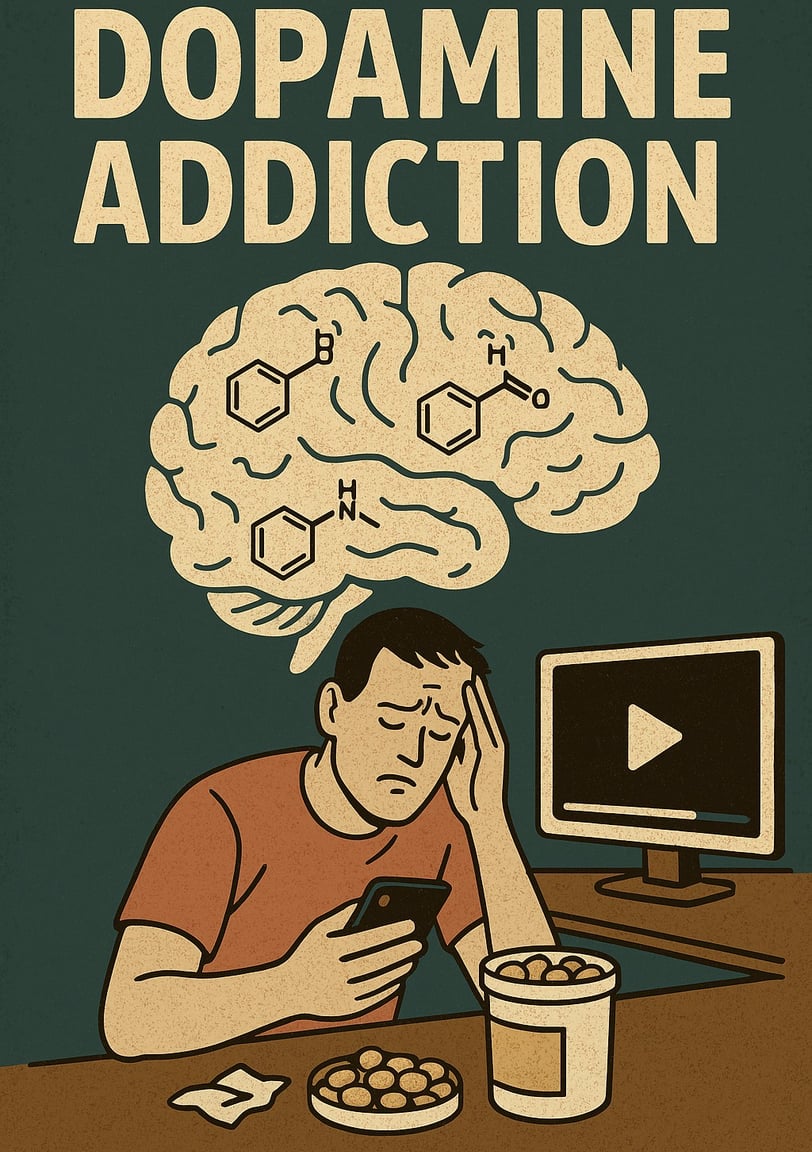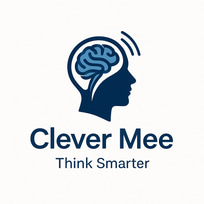The Hidden Cost of Easy Pleasure: How Dopamine Addiction Is Damaging Your Mental Health
In this article, you’ll discover how dopamine — the neurotransmitter of pleasure and motivation — can be your greatest ally or your worst enemy. Dr. Anna Lembke, a psychiatrist at Stanford University and a global authority on addiction, explains how seemingly harmless behaviors like eating sweets, scrolling through social media, or watching pornography are actually affecting your brain. Learn how to regain control and restore your neurochemical balance.
Junior OD.
4/13/20253 min read


Introduction
There’s a shocking experiment with rats that shows the power of dopamine: when deprived of this chemical, the rats would only eat if food was placed directly in their mouths. If it was just a few inches away, they would starve to death.
Why? Because dopamine is the fuel for action, motivation, and desire. Without it, we don’t pursue even the basics of survival. Now imagine the impact of this in today’s world — saturated with instant pleasures. That’s the foundation of Dr. Anna Lembke’s powerful interview on The Diary of a CEO podcast.
What Is Dopamine and Why Does It Matter?
Dopamine is a neurotransmitter produced in the brain. Its most important role isn’t giving us pleasure — it’s motivating us to seek it. It’s directly tied to our survival. Without dopamine, we don’t feel the urge to eat, move, or pursue goals.
The Balance Between Pleasure and Pain
One of the most important discoveries in neuroscience in the past 75 years is this: the same brain circuits that process pleasure also process pain. And the brain is constantly trying to maintain balance — what scientists call homeostasis.
When we feel pleasure (e.g., drinking alcohol or scrolling social media), the brain releases dopamine. But shortly after, it compensates for that spike by applying "weight" to the other side of the scale — reducing available dopamine. The result? Feelings of anxiety, restlessness, and craving more.
This is the root of addiction: we pursue the same thing again and again, not to feel good — but to escape discomfort.
The Addiction Cycle in the Modern World
Today we live in a world of artificial abundance: sugar, porn, drugs, social media, online shopping, and endless entertainment. All of these release large amounts of dopamine with minimal effort.
But our brains didn’t evolve to handle this.
Over time, the dopamine “scale” tilts permanently toward the pain side. We end up in a constant state of dopamine deficiency — anxious, distracted, and depressed — seeking any momentary relief.
As Dr. Lembke explains:
“The problem isn’t pleasure. It’s easy, repetitive, and effortless pleasure.”
Signs You Might Be Addicted Without Realizing It
You could be stuck in this cycle without even noticing. Some subtle signs include:
Constant anxiety
Irritability
Insomnia
Trouble focusing
Loss of interest in things you once enjoyed
Rationalizing compulsive behavior (“It’s just a game,” “I deserve this”)
Addiction Can Be Behavioral Too
Dr. Lembke shares her own addiction: erotic romance novels. She read compulsively, hid it from her family, and isolated herself — even on vacations. She couldn’t stop and only realized how out of control it was when she tried going 30 days without reading.
Many people experience the same with:
Social media
YouTube or streaming videos
Pornography
Gaming
Overworking (workaholism)
Why Stress and Trauma Increase Addiction Risk
Studies show that after trauma or intense stress, the brain turns to the substance or behavior that once brought relief — even if that behavior had already stopped.
And it doesn’t take a major trauma. Everyday stressors like being Hungry, Angry, Lonely, or Tired (HALT) can trigger relapses or compulsions.
There’s a Way Out: How to Restore Dopamine Balance
1. Dopamine Fasting
Avoid your addictive behavior for 30 days — whether it’s food, videos, your phone, social media, games, or porn.
You may experience withdrawal symptoms in the first 10 to 14 days. But afterward, your brain begins to reset, and simple pleasures start feeling good again.
2. Earn Your Dopamine Through Effort
Do hard things — like exercising, cold showers, or intermittent fasting. These create dopamine slowly and sustainably, without a painful crash.
3. Embrace Discomfort
The key to being present is accepting pain, boredom, or emptiness. Running from it only deepens the imbalance.
Better Living Is Simple — But Not Easy
Dopamine is essential to life — but overusing it is a modern trap. As Dr. Lembke puts it:
“If you’re not addicted yet, you’re probably just one click away.”
Being conscious in a world full of instant gratification is an act of resistance. Returning to simplicity, learning to say no, and reclaiming joy through real effort may be the path to a fuller life.
SEO Keywords
Primary: dopamine, addiction, emotional balance, pleasure and pain, dopamine fasting
Secondary: Dr. Anna Lembke, dopamine detox, modern mental health, behavioral addiction, digital compulsion
Tone of Voice
Scientific, empathetic, and educational — blending authority with vulnerability.
📌 Call to Action (CTA)
7-Day Challenge: Detox from Your Addictive Behavior!
Try going 7 days without social media, porn, sugar, or any habit you feel dependent on.
Journal how you feel — and share this article with someone who needs it today.
